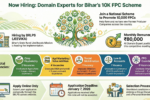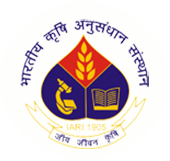
Overview of JEEViKA and Its Mission
JEEViKA, under the Bihar Rural Livelihoods Promotion Society (BRLPS), is an autonomous society designated as the State Rural Livelihoods Mission by the Government of Bihar. Operating under the National Rural Livelihood Mission, JEEViKA aims to empower rural communities across all 534 blocks in 36 districts of Bihar. The organization has successfully reached nearly 1.3 crore rural poor households, organizing them into 10.47 lakh Self-Help Groups (SHGs), 69,257 Village Organizations, and 1,646 Cluster Level Federations. These institutions have generated Rs. 11,000 crore in funds and leveraged over Rs. 30,000 crore from banks.
Table of Contents
- Overview of JEEViKA and Its Mission
- Job Opportunities at JEEViKA in 2025
- Key Dates for Application
- Eligibility Criteria
- Selection Process
- Key Responsibilities and Skills
- How to Prepare for JEEViKA Recruitment
- Download Notification – Click Here
- Why Join JEEViKA?
Job Opportunities at JEEViKA in 2025
BRLPS invites applications for various positions under the Block Project Implementation Unit (BPIU). These roles offer a unique opportunity to join a team of over 6,000 dedicated development professionals working to alleviate rural poverty and promote sustainable livelihoods in Bihar.
Key Positions Available
- Block Project Manager: Responsible for project planning, implementation, monitoring, and convergence with government schemes.
- Community Coordinator: Focuses on mobilizing rural communities and supporting SHGs and community-based organizations.
- Assistant and Block IT Executive: Handles administrative and IT-related tasks at the block level.
Key Dates for Application
- Application Start Date: February 30, 2025
- Last Date for Online Application: August 18, 2025
Note: Applications submitted after August 18, 2025, will not be accepted. Canvassing in any form will lead to disqualification.
To apply, visit the official JEEViKA career portal at https://brlps.in/career.
Eligibility Criteria
- Minimum Age Limit: 18 years as of August 18, 2025.
- Maximum Age Limits:
- General/EWS Male: 37 years
- Female UR/BC/EBC/EWS: 40 years
- Male BC/EBC: 40 years
- Male & Female SC/ST: 42 years
- Retired officials from Government/PSU/Bank: 63 years
- Candidates currently working with BRLPS: 50 years
- Reservation: 35% reservation as per Government of Bihar resolution dated July 9, 2015.
- Minimum Cut-off Marks for CBT:
- UR: 50%
- EWS/BC/EBC: 45%
- SC/ST: 40%
Note: Candidates not meeting eligibility criteria will have their applications rejected. Providing incorrect information may lead to disqualification, termination, legal action, and recovery of paid salaries.
Selection Process
The selection process includes a Computer-Based Test (CBT) with category-wise minimum cut-off marks. For Assistant and Block IT Executive positions, a typing test is also required. Marks are normalized using the following formula:
- Mij = Normalized marks of the 1 session.
- Mij = is the average marks of the top 0.1 of the candidates considering all sessions.
- Mij = is the sum of mean and standard deviation marks of the candidates in the paper considering all sessions.
- Mij = is the average marks of the top 0.1 of the candidates in the 1 session.
- Mij = is the sum of mean marks and standard deviation of the 1 session.
- Mij = is the actual marks obtained by the 1 candidate in 1 session.
Key Responsibilities and Skills
Block Project Manager
Sections Covered:
- Rural Society, Economy, and Governance:
- Indian Rural Society: Caste system, social stratification, and demographic features.
- Rural Poverty: Concepts, causes, and measurement of poverty.
- Rural Economy: Structure of the Indian rural economy, agriculture, and the informal sector.
- Panchayat Raj Institutions: 73rd Amendment, structure, functions, and role in rural development.
- Deendayal Antyodaya Yojana – NRLM:
- Objectives: The mission’s objectives and guiding principles.
- Institutional Architecture: Structure and roles from SPMU to BPIU and community-based organizations.
- Key Components: Social Mobilization, Institution Building, Financial Inclusion, Livelihood Promotion, and Convergence.
- Values of NRLM: Inclusion, transparency, and accountability.
- Social Mobilization and Institution Building:
- Community Mobilization: Concepts and strategies for mobilizing the poor and vulnerable.
- Self-Help Groups (SHG): Formation, stages of group development, ‘Panchasutra’ (regular meetings, regular savings, regular inter-loaning, timely repayment, up-to-date books of accounts).
- Community Groups (CG): Formation, stages of community development, ‘Panchasutra’.
- Capacity Building: Role of Community Resource Persons and their training.
- Financial Inclusion:
- SHG-Bank Linkage: Process, documentation, and importance.
- Community Funds Management: Understanding and management of Revolving Fund (RF) and Community Investment Fund (CIF).
- Livelihood Promotion:
- Sustainable Livelihoods Framework: Application in agriculture, livestock, and non-farm livelihoods.
- Promotion of micro-enterprises, skill development, and market linkages.
- Social Chain Development: Basic concepts of value chain analysis and interventions.
- Project Management and Convergence:
- Project Planning and Implementation: Developing Annual Action Plans.
- Project Monitoring and Evaluation: Management Information System (MIS).
- Convergence: Strategies with schemes like MGNREGA, Swachh Bharat Mission, National Health Mission.
- Basic Administration: Familiarity with office procedures and financial rules.
Accounting and Auditing Roles
- Accounting:
- Receipts, Accounting Process: Journal Entries, Ledger, Trial Balance, Subsidiary Books, Cash Book, Bank Reconciliation Statement.
- Accounting for profit-making organizations and Producer Companies, including Financial Statement preparation.
- Accounts from incomplete records.
- Auditing:
- Audit Programme, working papers, evidence, and preparation.
- Internal Check System, Routine Checking, Internal Control, and Audit Procedure.
- Company Audit, Vouching, Verification of Assets and Liabilities.
- Labour and Economic Law:
- Taxation: Previous year, assessment year, basis of charge, rates of tax, residential status, scope of total income.
- Heads of income: Salaries, house property, business/profession, capital gains, other sources.
- Assessment of income for different entities: Association of Persons, Co-operative Societies, Trusts, Charitable Institutions.
- Assessment Procedure: Types of returns, due dates, e-filing procedures, PAN/TAN, TDS, GST, and statutory compliances.
Community Coordinator
- Rural Development:
- Concept and Definition of Rural Development.
- Historical Background of Rural Development Initiatives.
- Characteristics of Rural Economy.
- Panchayati Raj Institutions and their Role in Development.
- Key Government Schemes:
- Central Government Schemes:
- Mahatma Gandhi National Rural Employment Guarantee Act (MGNREGA).
- Deendayal Antyodaya Yojana – National Rural Livelihoods Mission (DAY-NRLM).
- Pradhan Mantri Awaas Yojana – Gramin (PMAY-G).
- Pradhan Mantri Gram Sadak Yojana (PMGSY).
- National Social Assistance Programme (NSAP).
- PM-KISAN (Pradhan Mantri Kisan Samman Nidhi).
- Rashtriya Krishi Vikas Yojana (RKVY).
- Social Security Schemes and other Central Government initiatives.
- Bihar State Government Schemes:
- JEEViKA – Bihar Rural Livelihoods Promotion Society and its Initiatives.
- Satat Jeevikoparijan Yojana (SJY) – Bihar’s ultra-poor graduation approach.
- Kushal Yuva Program (KYP) – Skilling youth under Bihar Skill Development Mission.
- Mukhyamantri Udyami Yojana – Support for rural entrepreneurs.
- Central Government Schemes:
How to Prepare for JEEViKA Recruitment
For Block Project Manager:
- Study NCERT Sociology and Political Science for rural society and governance.
- Understand the NRLM framework, focusing on social mobilization, financial inclusion, and livelihood promotion.
- Familiarize yourself with project management and government scheme convergence.
For Accounting and Auditing Roles:
- Master accounting processes, including journal entries, ledger, and financial statements.
- Learn auditing techniques, internal controls, and vouching.
- Understand taxation laws, GST, and statutory compliances for Producer Companies.
For Community Coordinator:
- Gain knowledge of rural development concepts and government schemes like MGNREGA, DAY-NRLM, and Bihar-specific programs.
- Understand the role of Panchayati Raj Institutions in rural development.
Download Notification – Click Here
Why Join JEEViKA?
Working with JEEViKA offers a chance to make a meaningful impact on rural communities in Bihar. By joining, you’ll contribute to empowering millions through sustainable livelihoods, financial inclusion, and community-driven development. This is a rewarding career path for those passionate about rural development and social change.Apply Now







